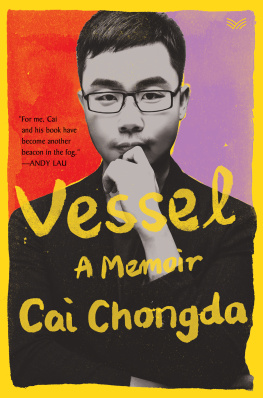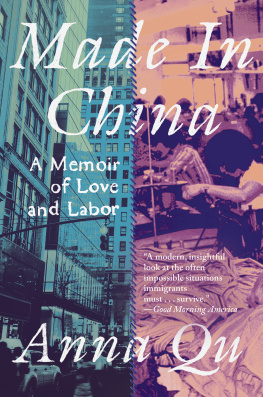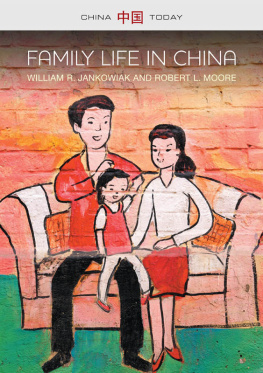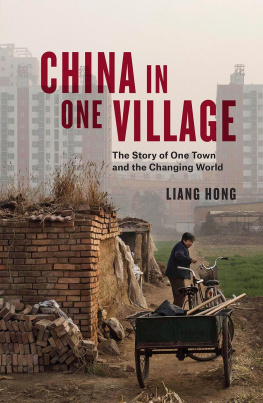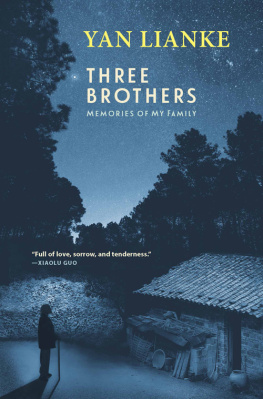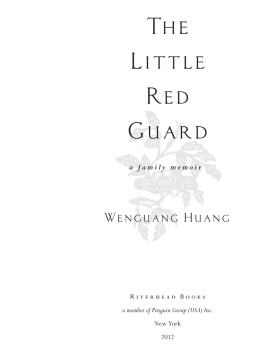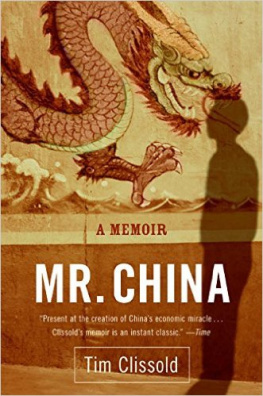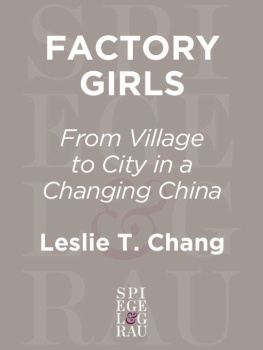Contents
Guide
Contents
N ana, my great-grandmother on my mothers side, lived to the age of ninety-nine. She was a tough woman. Her daughter, my grandmother, passed away in her fifties. Parents should never have to bury their children, but thats exactly what my nana had to do. The relatives worried about how she would take it, so they took turns watching over her. As the time to see her daughter off came, she became angry. For reasons that were unclear even to her, she stalked the house, cursing to herself. She opened the lid of the coffin to look at her daughter, then went to the kitchen to inspect the offerings for the funeral. When she went back into the main room, she saw someone trying to kill a chicken. They had cut the neck of the bird but hadnt managed to sever its carotid artery. The chicken was running around, dripping blood everywhere. She ran over, grabbed the chicken, and flung it to the floor furiously.
The feet of the chicken clawed at thin air, then finally stopped moving. You have to finish itdont let the body torture the soul. She wasnt an educated woman, but she had a reputation as a sort of witch doctor. She occasionally came out with a phrase that seemed to have been pulled from a dusty tome.
Everyone was struck dumb.
She didnt cry at the funeral. Even when my grandmothers body was being put into the crematory, she only cast a sidelong glance at the scene, as if expressing silent disdain for those who wept and wailedor perhaps she was simply an old woman drowsing.
I was just going into first grade that year. I didnt understand how she could be so cold-blooded. During the funeral, I went over to her side a few times to ask her, Nana, how come youre not sad? Her liver-spotted face smoothed and softened. That was Nanas smile.
It is because I hold no grudges, she said.
It was something I heard her say many times later in life. After my grandmother died, she often came to stay with us. She said, Before your grandmother died, she told me, Blackie doesnt have a grandpa or grandma, and his parents are always busy. I want you to look after him.
Nana was a ruthless woman. You could see it even in the way she chopped vegetables. She chopped down on the stems and leaves with the same force she used to whack through spareribs. One time she was working in the kitchen, and I heard a very calm ai-ya.
I shouted back, Whats wrong, Nana?
Im fine, she said. I just cut the tip of my finger off. Everyone in the family started rushing around, but through it all she remained stone-faced.
My mother and I sat on a bench in the hospital hallway while she was having her fingertip sutured back on. My mother told me a story about her. When Nanas sonmy mothers unclewas still young and hadnt yet learned how to swim, she threw him in the ocean. That was her way of teaching him to swim. He came close to drowning, but a neighbor was nearby and ended up jumping in to save him. A few days later, the same neighbor saw her throw her son into the ocean again. When she heard people calling her cold-hearted, she coldly replied, Make your body serve you, not the other way around!
When she got out of the hospital, I asked her if the story was true. I couldnt help myself. Its true, she said flatly. Your bodys a vessel. If you wait on it to do something, theres no hope for you. If you put your body to work, you can start to live. To be honest, at the time I didnt understand.
I always thought she must have been carved from stone: she was so hard that nothing could hurt her. In our small town, she had a reputation as a tough old woman. Even in her nineties, she would totter on her bound feet by herself from her village to the town. When we tried to get her a car to go back, she would always erupt: Youve got two choices, you either walk with me or I walk back by myself. So it became a frequent scene on the flagstone path that led to the edge of town: a young man supporting the old woman as she walked back home.
But as strong as she was, I did see her cry. This happened when she was around ninety-two years old. She had climbed up on her roof to fix a hole. She was careless, lost her footing, and slipped off. When she came inside, she could only lie motionless on her bed. I went to visit her. She heard me coming, and before I even opened the door, she cried out, My great-grandson, such a good boy.... Your nana cant move. Nana is stuck here. A week later she stubbornly insisted on getting back on her feet, but she only managed a few steps before she fell again. She cried and made me promise that I would come see her as often as I could. She got up every day and leaned on a chair to make her way to the front door. She sat there waiting for me. I went to visit as often as I could, and even after she had recovered, I kept going, especially when something was bothering me. Sitting with her, I felt an indescribable peacefulness.
I started to see her less frequently after I went to university and then took a job in another city. But whenever I was going through difficult times, I asked for leave and went back to sit with her for an afternoon. When I told her what was troubling me, she didnt always understandshe was hard of hearing, too, so maybe she didnt even hear me. Whenever I saw a slightly perplexed smile spread across her face, smoothing the wrinkles that the years had carved, I felt completely at ease.
I found out about her passing on a completely ordinary morning. My mother called to tell me that she was gone, and then both of us began to cry. She told me that Nana had wanted to tell me this: Dont let Blackie cry. Death is just another rung on the ladder. If you remember me, I will be there. Itll be even easier to come visit you now that Im free of this body.
It was only then that I finally understood what she had said to me, that I understood her outlook on life: life would be easy if we werent dragged down by the body and all its base desires. Nana, I remember. If you wait around all day for this vessel, theres no hope for you. If you can put your body to some use, you can start to live. Please promise you will come to see me.
M y mother wanted to build the house even though she knew very well that it might stand for a year or less before it was torn down.
She was on her way back from the municipal government offices when she decided. She had seen the demolition plans on one of the walls in an exhibition room. The pencil line on the map had been hastily scrawled, but it was clear enough that it cleaved through our piece of land like a knife splitting a block of tofu.
She thought she could even hear the sound of the line splitting her new housenot an abrupt crack but a resounding gong. The sound echoed in her ears the whole way back. She told me she had a headache.
Maybe its this weather, she said. No fresh air. Maybe Im just tired from the walk. Maybe its this dry winter. She asked me if we could rest. She leaned against the wall of a house along the road. She turned away from me and covered her face with her hand.
I knew it had nothing to do with the weather. I knew it had nothing to do with her being tired. I knew it wasnt because the winter air was too dry. I knew that what she was trying to do with her face buried against the wall was to calm the rough seas of her own heart.
The four-story house we were going home to wasnt much to look at. Even without going inside, you would know it was no palace. The lot it sat on was about two thousand square feet, with the big house on the north half, sitting in a messy yardan older brick house, its facade mottled by age. It would be obvious to anyone looking at it that the four-story house had not been put up all at once: the two lower floors were facing west, with two big doors opening on the road, part of a naive scheme of my mothers to run a shop there; the two upper floors faced south, and they seemed unfinished, displaying exposed brick and concrete.

